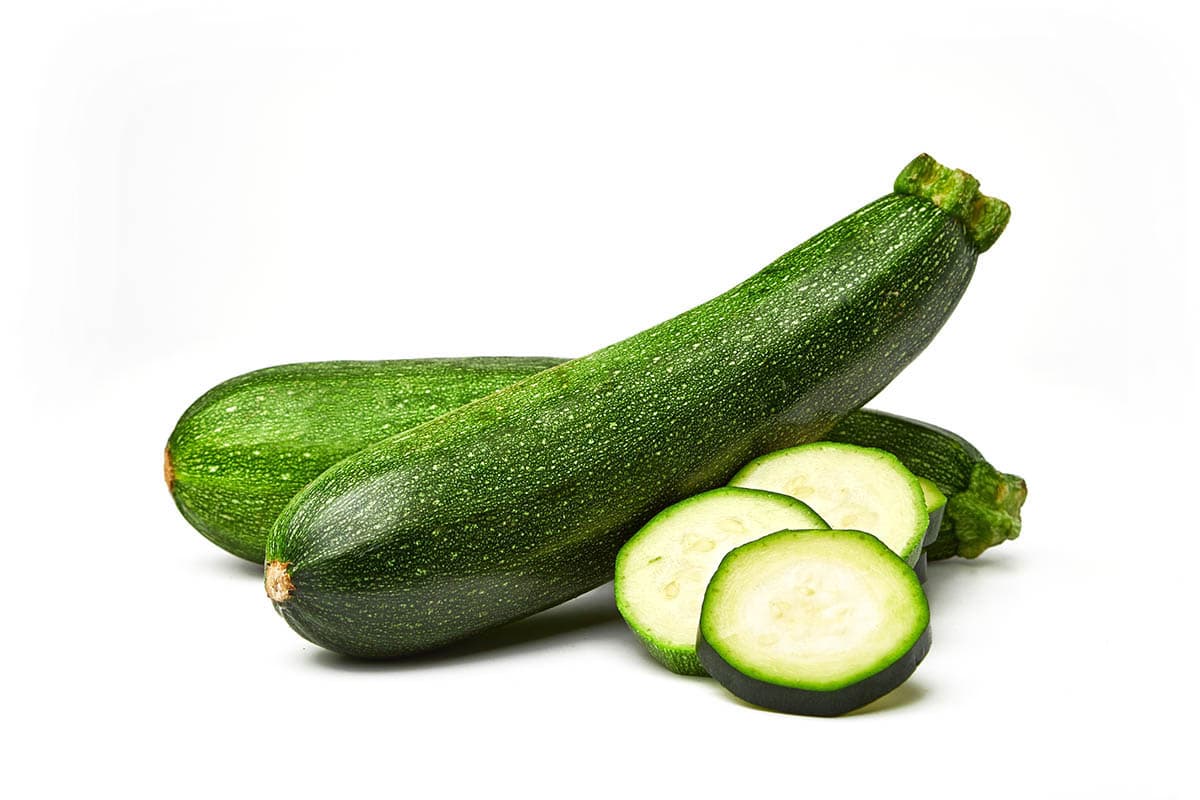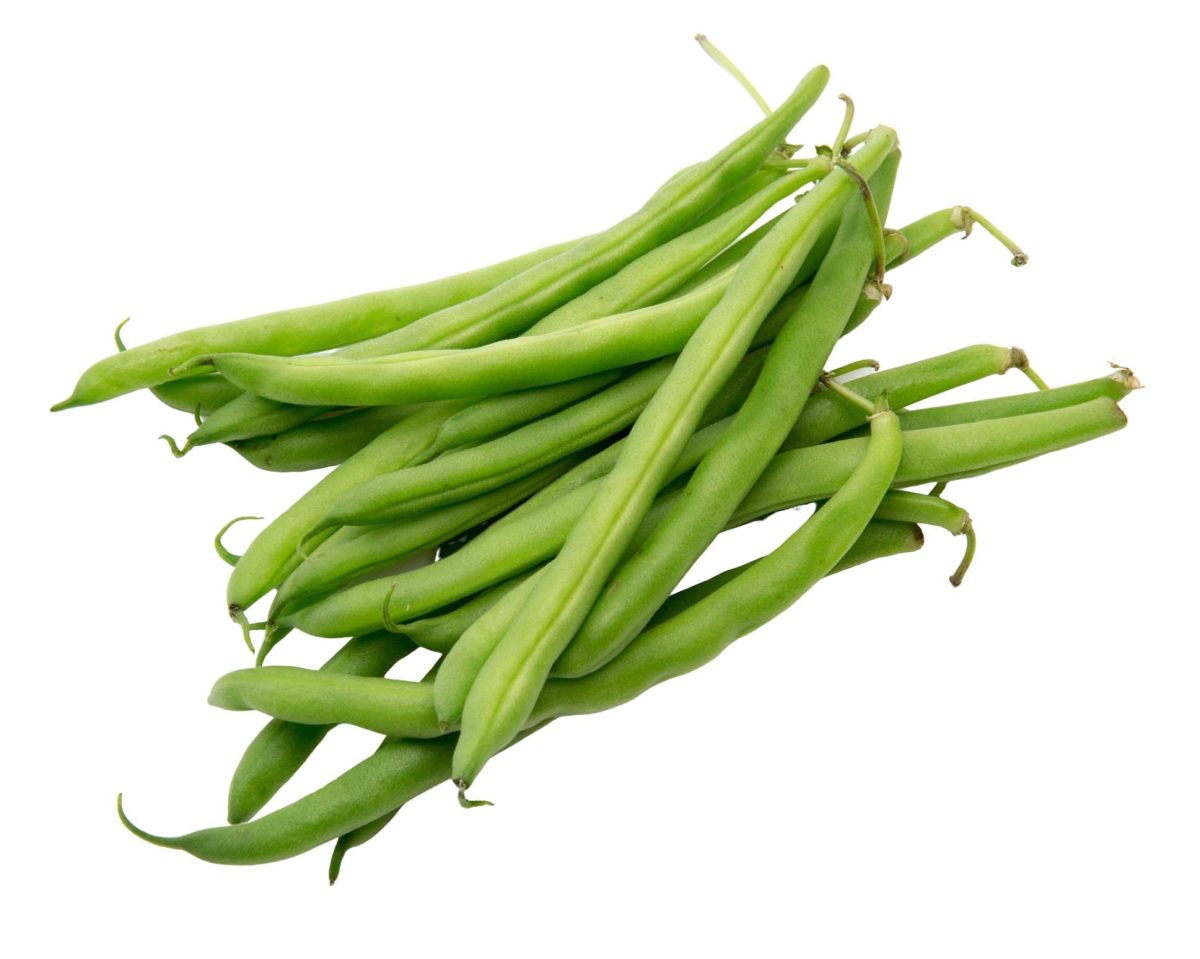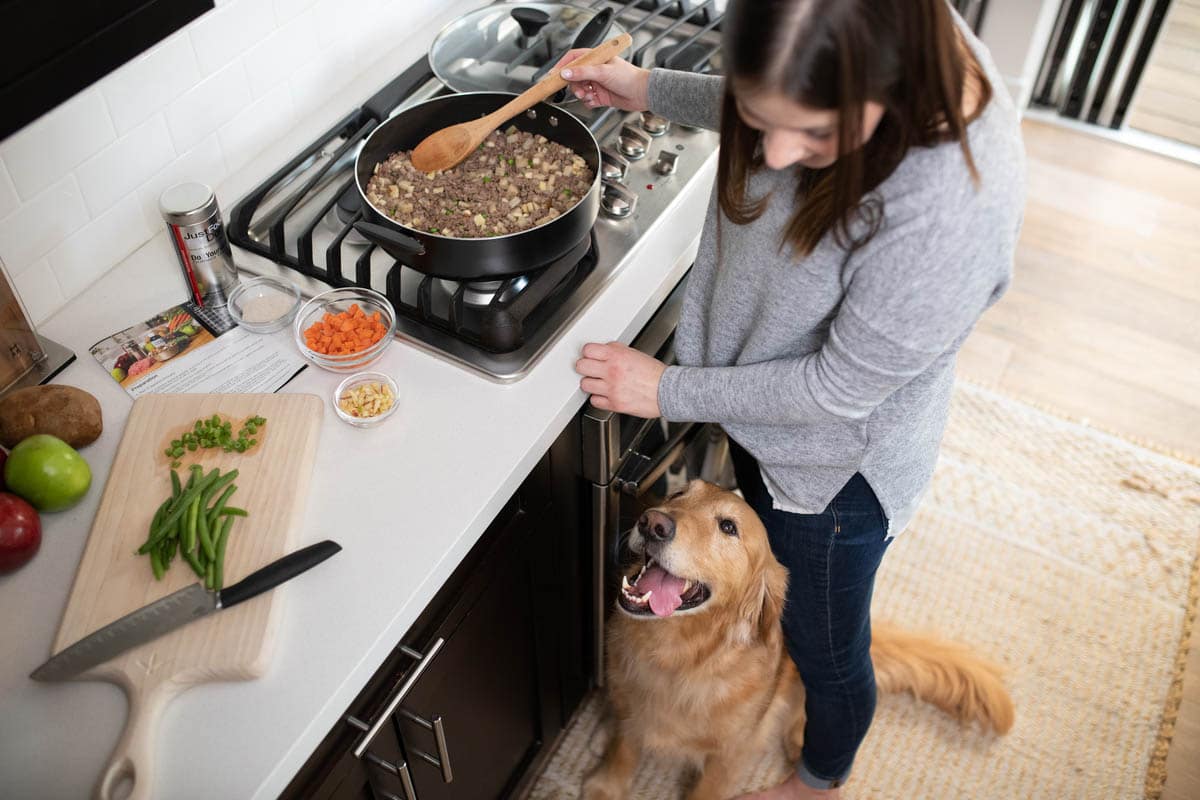Can Dogs Eat Zucchini?
Most people know about the health benefits of squash, but can your furry friend eat them, and if so, what kind? Here's everything you need to know about feeding your pup zucchini.
When it comes to choosing the right dog food for your best friend, you want to make sure you get the healthiest food available. Most people know about the health benefits of veggies, but can your furry friend eat them, and if so, what kind? Can dogs eat zucchini?
Zucchini is a versatile and nutritious vegetable that is often celebrated in human diets for its low-calorie and high-nutrient content. Many health-conscious pet parents may find themselves wondering if it’s safe to share with their dog.
Let’s delve into the nutritional benefits and potential risks of feeding zucchini to dogs, explore how it can fit into their diet, and discuss any precautions you should be aware of before feeding it to your pooch.
What Is the Value of Feeding Zucchini to Dogs?
There are many benefits of dog zucchini. Zucchini, also known as courgette or baby marrow, is a summer squash that has many health benefits for both humans and dogs.
Zucchini is a low-calorie vegetable that has a low sugar content. It’s also low in fat and carbohydrates, making it a great option for pet owners looking to add variety to their dog’s diet without contributing to excessive weight gain. It can be a great dog treat for dogs struggling with obesity.
Additionally, zucchini is rich in essential vitamins and minerals, including folate, vitamin C, vitamin K, potassium, magnesium, phosphorus, calcium, and manganese. It’s also rich in vitamin A, and that’s particularly true if it’s cooked as opposed to raw zucchini.
It’s also rich in multiple antioxidants, such as lutein and zeaxanthin. Additionally, its high-fiber content can help support digestion for problems like constipation in dogs. Overall, these nutrients play crucial roles in maintaining overall health and supporting various bodily functions in both humans and dogs.
Finally, zucchini has a high water content, which can help to keep your furry friend well-hydrated. When your dog eats zucchini, he’s effectively getting a healthy treat that’s great for supporting his immune system, digestive health, ensuring he has a good source of vitamins for an active life, and helping to keep him well-hydrated. That makes it a doggie super food, but are there any risks to feeding zucchini?
Are There Risks to Feeding Dogs Zucchini?
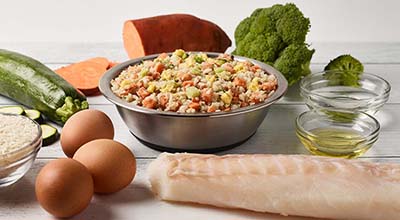
While zucchini can offer numerous health benefits to dogs, there are some potential risks and considerations that you should be aware of:
- Allergies: Just like humans, dogs can develop allergies to certain foods, including vegetables like zucchini. While rare, it’s essential to monitor your dog for any signs of allergic reactions, such as itching, swelling, or gastrointestinal upset, after introducing zucchini into their diet.
- Digestive Upset: Introducing new foods into a dog’s diet too quickly can sometimes lead to digestive upset, including diarrhea or vomiting. When offering zucchini to your dog for the first time, start with small quantities and monitor their response closely.
- Preparation and Serving: It’s crucial to prepare zucchini for your dog in a way that is safe and easy for them to consume. Part of the problem with feeding human food to dogs is all of the extra seasonings humans tend to enjoy that can be harmful to dogs. You’ll specifically want to avoid cooking zucchini with certain seasonings such as garlic or onion, and it’s important to be mindful of any seeds or skin that may present a choking hazard.
- Moderation: While zucchini can be a healthy addition to your pet’s diet, it should be offered in moderation. Too much zucchini, or any new food, can cause an upset stomach or lead to nutritional imbalances.
- Veterinary Consultation: As with any dietary changes or additions, it’s always a good idea to consult with your veterinarian before feeding zucchini or any other new food to your dog, especially if your dog has specific health concerns or dietary restrictions.
How Can You Safely Add Zucchini to Your Dog’s Diet?
If you’ve decided to introduce zucchini into your dog’s diet, here are some tips for doing so safely:
Start Slowly
Begin by offering small pieces of cooked or raw zucchini as a treat or topping to your dog’s regular meals. Monitor their reaction for any signs of intolerance or allergic reactions.
Prepare Properly
Wash and slice the zucchini into bite-sized pieces, removing any seeds or tough skin that may be difficult for your dog to digest. Steaming or boiling zucchini can make it easier for dogs to chew and digest, and cooking zucchini increases the vitamin A content.
Avoid Seasonings
Refrain from adding any seasonings or additives to the zucchini, as these can be harmful to dogs. Plain, unseasoned zucchini is best for canine consumption. You don’t want to add salts or oils either. No matter how tasty those are for you, they are not the best option for your pooch.
Monitor Portion Sizes
While zucchini can be a healthy addition to your dog’s diet, it should be offered in moderation as one part of a balanced diet. Too much zucchini can upset your dog’s stomach or lead to an imbalance in their overall diet.
Veterinary Guidance
If you have any concerns or questions about feeding zucchini to your dog, don’t hesitate to consult with your veterinarian. They can provide personalized recommendations based on your dog’s individual health needs and dietary requirements.
Avoid Baked Zucchini
Certain foods made with zucchini, like bread and other baked goods, can be problematic. They often are higher in calories, and the fat and sugar content can cause an upset stomach. Additionally, some baked goods contain xylitol, which is a sweetener that is toxic to dogs and should be avoided at all costs.
How Much Zucchini Should You Give Your Dog?
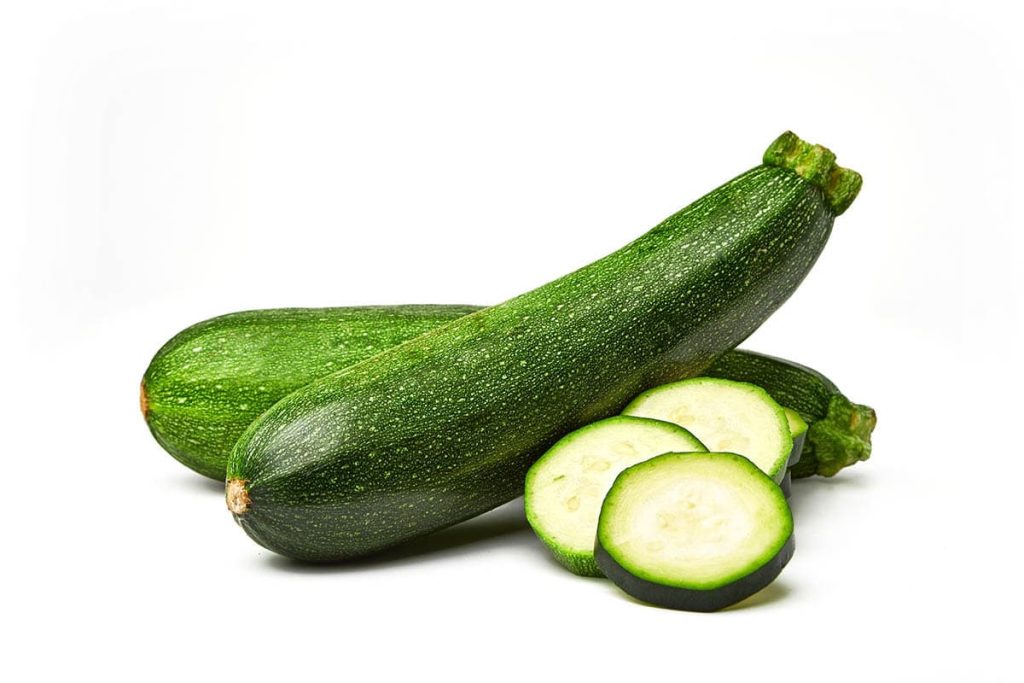
While zucchini is very good for your dog’s overall health, you certainly don’t want to be feeding only zucchini or even too much zucchini. So how much is too much?
If you’re feeding zucchini as a dog treat, it should make up less than 10% of your dog’s diet. They usually tolerate it well, but a large amount of anything can cause problems.
If it’s a new food for your pooch, you’ll want to observe him for any adverse reactions, and as mentioned before, large pieces can be a choking hazard, so stick to small portions.
How much zucchini you feed your dog depends on his size. Here are some general guidelines for how much you should feed, but as previously mentioned, it’s a good idea to check with your veterinarian before changing your dog’s diet.
- Extra-small dogs (2 – 20 pounds): Examples include Yorkies, Chihuahuas, and Pugs, and you should feed 1 teaspoon per day.
- Small dogs (21 – 30 pounds): Examples include Beagles, Scottish Terriers, and Basenjis, and you can feed 1 – 2 teaspoons per day.
- Medium dogs (31 – 50 pounds): Examples include Basset Hounds, Border Collies, and Australian Cattle Dogs, and you can feed 2 – 3 teaspoons per day.
- Large dogs (51 – 90 pounds): Examples include Pit Bulls, Labrador Retrievers, and German Shepherds, and you can feed 1 – 2 tablespoons per day.
- Extra large dogs (Over 90 pounds): Examples include St. Bernards, Bernese Mountain Dogs, and Newfoundlands, and you can feed 3 – 4 tablespoons per day.
What Other Vegetables Can Your Dog Eat Safely?
There are a number of other vegetables that are safe for dogs to eat and have numerous health benefits. These include the following:
- Broccoli: Great source of vitamins A, C, and vitamin K as well as potassium and fiber, but too much can cause gas
- Cauliflower: Good source of vitamins A, C, and K, potassium, and fiber
- Carrots: Good source of vitamins A, C, and K, and potassium
- Cucumbers: Good source of water for hydration and low in calories
- Spinach: Good source of vitamins A, C, and K, and potassium
- Tomatoes: Good source of vitamins A and C, but some dogs are sensitive if fed in large quantities.
- Green Beans: Good source of vitamins C, beta-carotene, folate, and potassium
- Sweet Potatoes: Good source of antioxidants, fiber, and many vitamins.
Zucchini Recipes for Your Dog
If you’re looking for healthy, fresh, whole-food recipes that incorporate zucchini and other healthy ingredients, we’ve got you covered. Several of our recipes include zucchini, are made without preservatives, and offer human-grade nutrition.
This content is for informational use only and does not replace professional nutrition and/or medical advice, diagnosis, or treatment. It is not a substitute for and should not be relied upon for specific nutrition and/or medical recommendations. Please talk with your veterinarian about any questions or concerns.
